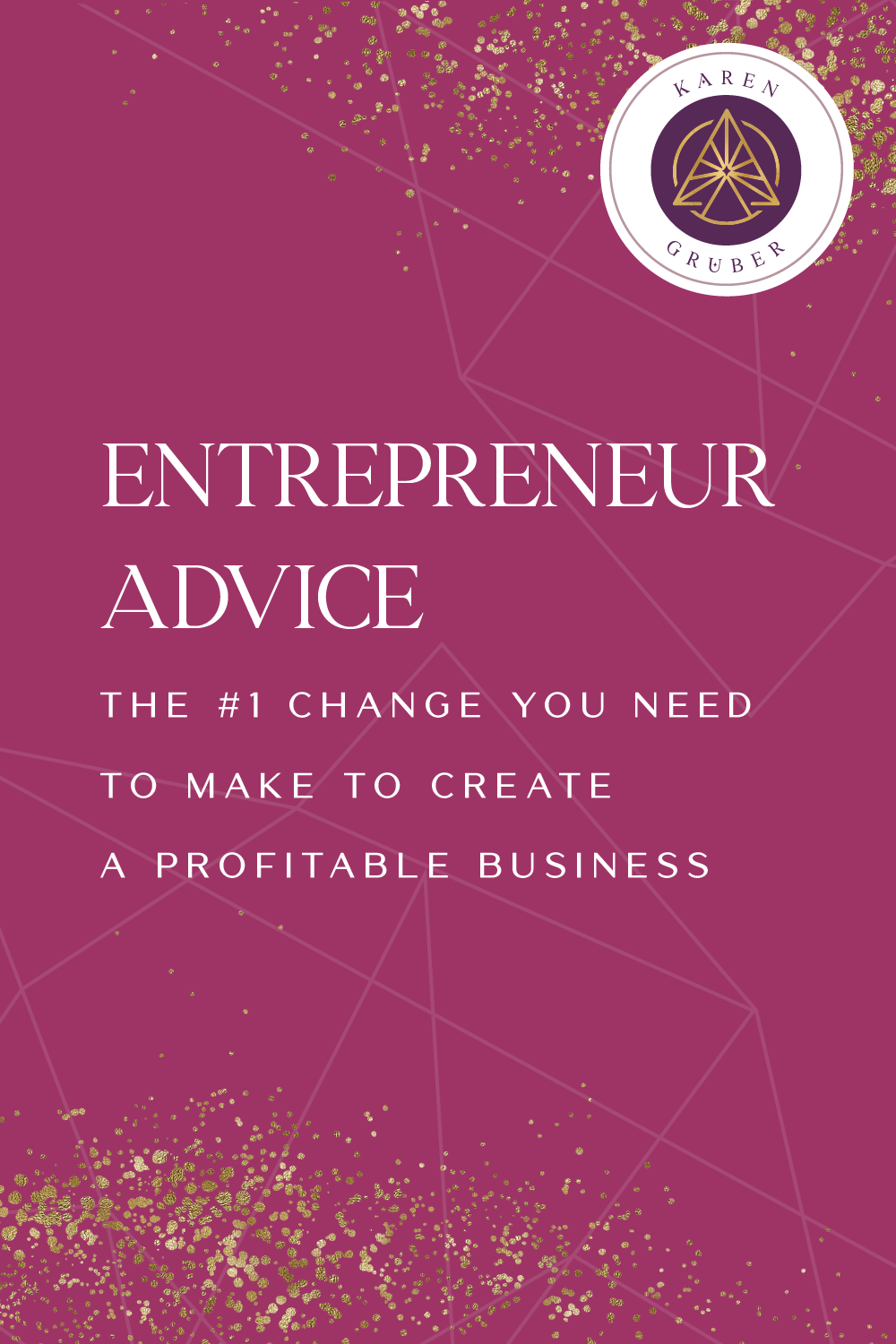
Entrepreneur Advice: The #1 Change You Need to Make to Create a Profitable Business
Apr 20, 2022Here’s a little entrepreneur advice, friend to friend. There is one thing that I bet you are not doing in your business right now and you absolutely (without a doubt) need to start doing, in order to make any money.
Which is the ultimate goal, right?
Who would start a business and not want it to be profitable?
Making money to sustain the business, and of course make a livable wage for yourself, is a necessity as an entrepreneur. Otherwise, it’s not a business.
I’m not just sharing this piece of entrepreneur advice casually—I really hope you take it. I want to see you succeed, Sister, and help you along the way.

Entrepreneur Advice: Know Your Numbers
The #1 change you need to make to be successful and profitable is simple: know your numbers.
I’m talking about your finances—your money numbers—the ins, outs and whereabouts of it all.
Know what’s coming in, what’s going out, what expenditures are absolutely necessary, and what can be saved or invested.
Be Informed & In Control
It is your responsibility to establish a system for the money your business makes. Just as you are accountable for the money you make, you are equally as responsible for what you spend too—your overhead, payroll and other bills.
The alternative (not knowing) is messy, unpredictable, and unprofessional.
You are a businesswoman, after all, and therefore need to know the financial health of your business. Is it running in a deficit? Are you overpaying for certain services? What is your expected income this month?
Be informed and in control!
Hobby vs. Profession
Did you know that there is a strange phenomenon that takes place with entrepreneurs? I’ve seen it over and over again—you are most likely to “fly by the seat of your pants” and treat your business like a hobby instead of a profession.
Let that sink in for a minute.
Why do you think this happens? A fear of failure? A fear of commitment?
Stop downgrading yourself and start living into your potential! If you are running a business, then run the business. Be proud of what you are creating.
Planning
Simply knowing the state of your finances puts you in a better position to make decisions.
Without this information written down somewhere it’s just a guess and you do not want to guess when it comes to financial matters. Like I said before—mess and mayhem. You need to know exactly where your money is going and where it’s coming from.
Have you ever attempted to stick to a financial plan based on speculation—trying to figure out what you’ve spent so far and what you have left all in your head?
If you haven’t, it might seem doable but you’ll quickly learn that mentally crunching numbers and actually being accurate is a true skill…for accountants and bankers.
It is not for the entrepreneur who has 101 things to focus on like you or me.
Use Your Resources
There are many resources—free and for purchase—available to help keep you on the right track. I’ve listed some here:
- A software program. These are a great resource to use for budgeting as they can generate a slew of reports, pie charts, and graphs. They will typically cost you something so you’ll need to add that as a line item in your budget when you get it set up.
- A spreadsheet. It can be as simple as an Excel spreadsheet (or Pages, for Mac users).
- A cloud-based service—also a free option! Something like a Google Doc can be updated on the go and help you stay accountable while you are away from the house. Everyone has access to this on their computers.
- A piece of paper. If you don’t have a computer, you can use a good old-fashioned piece of paper and hand write the information. Create a spreadsheet by hand and include all of your earnings and expenses.
There are very few reasons (if any) why you wouldn’t be able to start a financial plan. Keeping it is a whole other issue…
It Takes Two
Now that you know there are many programs available to help you keep track of the comings and goings of your money, you need to actually use them.
You have to make it a point to enter (or handwrite) the data into whatever budget template you choose to use, otherwise it’s useless.
Spreadsheets and computer programs are great tools but without you inputting information, they don’t work. It takes two.
Uncover Unnecessary Expenses
When you create a budget, you incorporate everything, no matter how small or petty it may seem—including: income, bills, subscriptions, rent, how much you like to spend on chocolate every month, etc. Every dollar needs to be accounted for.
Upon doing this you’ll discover that you’ve been paying for things you forgot about. You’ll think to yourself “what is this charge” or “oh yeah, I remember signing up for that”.
My advice: if you didn’t remember you were paying for it and don’t see a daily benefit from it, get rid of it and save that money for something more useful!
Systems for Success
Slow and steady wins the race…this is not a race by any means but I want you to be patient with yourself. Adopting a new system isn’t easy, especially when I’m suggesting you do something as often as everyday.
Habits are formed slowly. Did you know that it can take over 60 days for a new behavior to become integrated?
So, give yourself some grace and know that it will pay off in the long-run, I promise you that.
If you are interested in learning some healthy money habits then take a look at my post: Wealth Creation Tips: 6 Types of Toxic Money Behaviors That are Holding You Back. It will help you build your wealth and financial success in business and in life.














